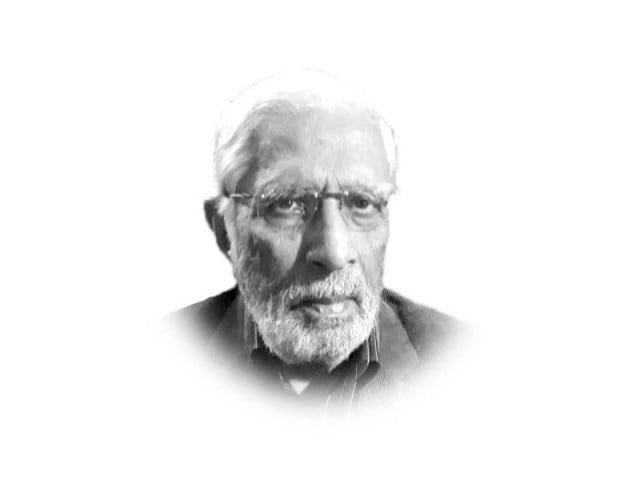Shrouded in mystery
Over the past five years or so, the Indo-Pak relations have deteriorated sharply

It is still a mystery. The events that led Pakistan and India to recommit on February 25, 2021 to the 2003 ceasefire arrangement at the Line of Control (LoC) continue to remain shrouded in opacity. More so, because none of the two has publicly withdrawn her precondition for resumption of bilateral talks. Pakistan had said it didn’t want to talk unless India revoked its August 5, 2019 decision with regard to Indian-occupied Kashmir (IOK). And India had declared that it didn’t want to talk unless Pakistan stopped sending terrorists across the LoC.
The LoC was created under the Simla Accord in 1972 in the aftermath of the war of 1971. And since then it has been violated a number of times followed by extended periods of shooting across it, at times pushing the two countries on the verge of full-scale war.
However, the two countries signed the historic Lahore Declaration on February 21, 1999. Though it was too short-lived, it was the most significant thaw in the realm of Pakistan-India relations after the Simla Accord.
For the signing of the agreement, Indian Prime Minister Vajpayee and his delegation visited Lahore by the inaugural bus service between New Delhi and Lahore. An MoU was also signed on the occasion which reiterated the determination of both countries to implement the Simla Accord in letter and spirit, and noted that an environment of peace and security is in the national interest of both countries and that resolution of all outstanding issues, including Jammu and Kashmir, is essential for this purpose.
But the then Army Chief, General Pervez Musharraf, threw the Declaration out of the window in April 1999, describing both the Lahore Declaration and the Simla Accord as useless documents. He then infiltrated the LoC in the region of Kargil, precipitating yet another war over Kashmir. But paradoxically, it was General Musharraf himself who had, as President of Pakistan, extended a hand of friendship to India in 2003 and signed a ceasefire agreement. The agreement came in the aftermath of a major crisis in 2001-02, which had brought the two states to the brink of war.
And by 2007, Musharraf had joined hands with Prime Minister Manmohan Singh to evolve a four-step formula for resolving the Kashmir dispute. But perhaps the hawks in the institution that he had headed were not in agreement with Musharraf-Manmohan formula for peace (as he was not in the Sharif-Vajpayee peace accord as COAS) and got rid of him using Justice Iftikhar Chaudhary.
In 2013, after Nawaz Sharif returned as PM, he was again seen keen on improving relations with India. The Pakistani establishment, however, had little interest in pursuing any such overtures. Consequently, trouble started brewing along the LoC, thereby undermining Sharif’s peace overtures.
In pursuit of their counterinsurgency strategy in IOK, in 2016, the Indian Army killed Burhan Wani, a local commander of Hizbul Mujahideen. Wani’s killing prompted further violation of LoC from the Pakistan side as his compatriots sought to avenge his death. Ceasefire violations on both sides then increased.
Over the past five years or so, the Indo-Pak relations have deteriorated sharply, especially after a suicide bomb attack on an Indian military convoy near the town of Pulwama in IOK in February 2019. It was attributed to Jaish-e-Mohammed which had claimed the 2001 attack on the Indian parliament. The Modi government authorised the Indian Air Force to make an incursion across the international border and strike at what it said was a terrorist training camp at Balakot. Within days, Pakistan retaliated striking near Srinagar. Despite much heated rhetoric from both capitals, the crisis tapered out.
However, it appears as if the establishment is perhaps reliving what can be called the Musharraf moment because of the continued political instability in the country which is also facing an economic meltdown of the worst kind since 2017 when Prime Minister Nawaz Sharif was ousted. The new surge in terrorism in the north, especially in North Waziristan, also seems to have made it imperative that we need peace and stability on all our borders, therefore the new overtures for peace with India.
















COMMENTS
Comments are moderated and generally will be posted if they are on-topic and not abusive.
For more information, please see our Comments FAQ